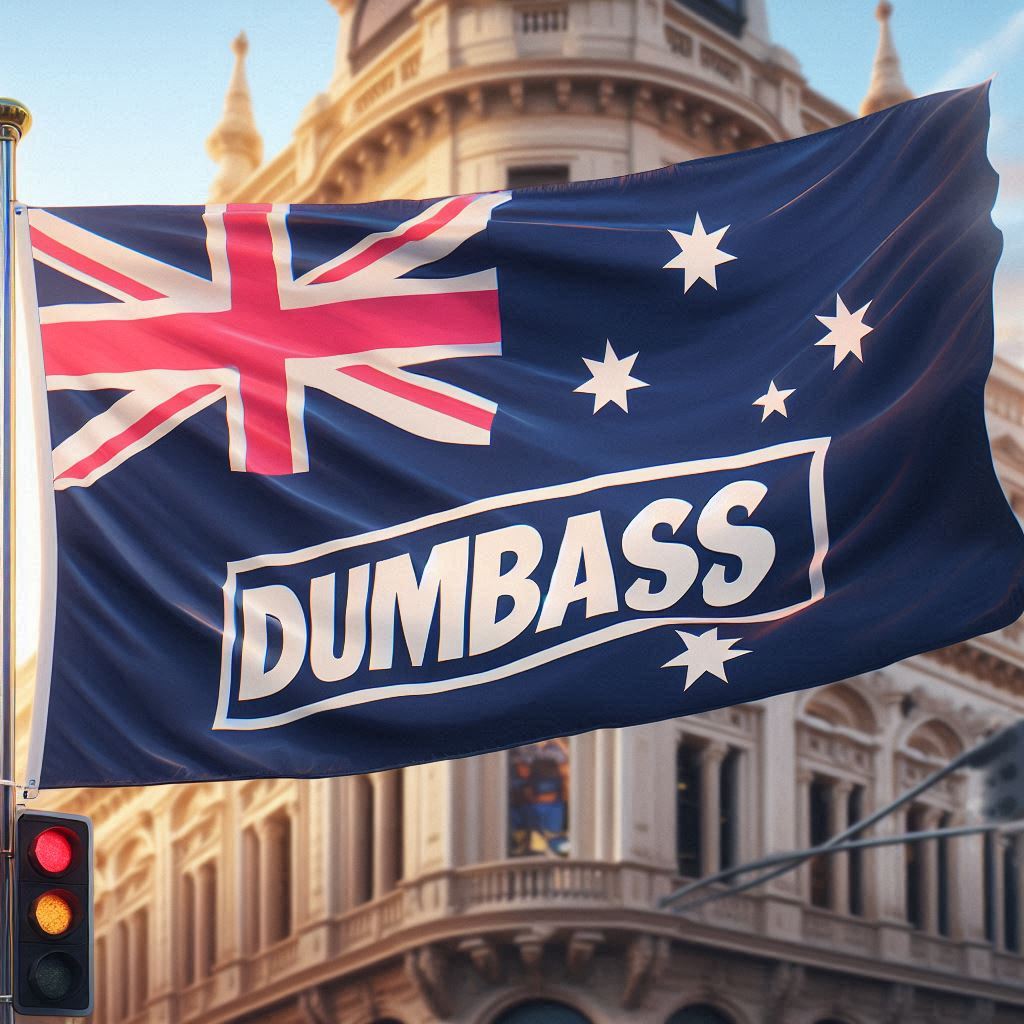- cross-posted to:
- andfinally@feddit.uk
- cross-posted to:
- andfinally@feddit.uk
“Despite a ramp being available, staff presumed Ms Landre didn’t want one”
How is that just one throwaway sentence under one of the images and not explained in any more detail. What does that mean? How available? Why did they assume she wouldn’t want it? Does she know a ramp was available?
"After being told she wouldn’t be able to receive her award onstage like the other recipients, the 25-year-old said she was “in shock and trying to figure out what to do”.
So, no she didn’t. From the rest of the article, it looks like that was information that only came out later, when some lowly fact-checker called in order to set the caption. Or it’s not true and was made up by the person writing the caption.
Especially odd to mention the availability of a ramp under a picture of her motioning to stairs.
It’s clearly a backfitted excuse.
I can understand not wanting to make a scene but that’s exactly what she should have done. Previous UK disability activists when appearing in TV studios wheeled into the stairs and flop out of their chairs onto the floor to highlight the problem of poor accessibility.
Crawl over to the one giving the award 🤣
Make them all come down to the floor.
Hire a criminal gang to come and break everybody’s legs
Flip the cap off the secret button on the wheelchair to activate drone mode
Let off the ejector seat
It is, but I think we can cut her some slack on freezing up in a posh situation, in shock at having been blindsided by that insult. She did make a scene after the event, which is why we’re reading this. I assume there were other awardees, whose reaction/support she couldn’t count on if she interrupted their ceremony and turned all the attention to herself.
It is fair to cut her some slack given that she likely was blindsided by the lack of accessibility, not every battle is worth fighting. But any opportunity to embarrass the City Of London Corporation is fair game given the absurdity of pomp and ceremony they surround themselves with.
Wait, NOT the onion… jesus
I work in events and this is a wild oversight.
There was actually a ramp available according to the article. They just didn’t bother with setting it up and excused themselves by saying they didn’t think she wanted one.
Can’t make this shit up.
That’s almost worse?! Total amateur hour!
That is worse
Obviously she just wanted to drag herself onto the stage with her fingertips, like a dying Terminator.
I bent the rules a little and used the headline the BBC used on Instagram 🤭
You’re a monster
Reported (to the cops)
It’s restricted in Canada. What was it?
Just joking about the headline change :)
Can web search “Instagram downloader” which is nice for avoiding Meta servers no matter where you live! Or influencing your recommendation history before you know whether you like a video.
“Hey, great job with that advocacy, or whatever. We weren’t really listening, but it was probably great though.”
If she can’t even campaign enough to get a ramp at the award ceremony where she won an award for her disability campaign, did she really deserve an award for her campaign at al!?!?!?!?
I’m disabled and a wheelchair user living in the UK.
There is almost no way to know, ahead of time, how accessible a venue will be. There are some resources available but they’re almost always created by other disabled people and might be outdated or they may not share your disability, so they might see things slightly differently than you do. It also takes a lot of work to figure it out - how will I get there? How will I get around once I’m there? Are there any stairs? Are there accessible bathrooms? Will there be enough space for me to move around, to turn, to get through a door?
She got there on the day and assumed that a ceremony for a disability campaigner would be accessible. Now that it turns out it wasn’t, she has taken the opportunity to spread awareness about it, making this event probably some of the most successful disability activism she has ever done, ironically.
The UK is absolutely awful for accessibility. It’s a massive, unbelievable heavy burden to be disabled, and as a wheelchair user it’s very hard to get around. There are so many things that businesses, employers, schools and public services do not consider which just makes our lives so much harder. It’s such a deep-running systemic issue.
If you’re in any position to impact decision making anywhere in your life, I’d encourage you to bring accessibility into those decisions. Whether that’s making sure that a website you’re designing is considering the needs of disabled people, or encouraging your employer to install ramps instead of stairs, or as simple as getting your office to consider using sans-serif fonts and light coloured backgrounds for black text instead of white. It’s something that all of us can help with.
or as simple as getting your office to consider using sans-serif fonts and light coloured backgrounds for black text instead of white. It’s something that all of us can help with.
So many restaurant menus that I can’t read as a result of this decision. No idea who thinks it’s a good idea to have yellow text on a pale yellow background.
That isn’t an accessible menu, no - black text on light yellow would be fine, for example, though.
This looks like a really stupid situation though. Going by the picture, since the article wasn’t that detailed, she was able to get into the room but the stage looks portable or fold up.
- it might have been just as easy to remove the stage
- looks like a motorized chair although I can’t really tell, which can be heavy and not maneuverable. If so, would it even be safe/practical to get that thing on a tiny, flimsy looking portable stage?
I respect your struggle.
It’s probably a participation trophy
“Again, we want to make clear our unreserved apology to Anna Landre and we are making every effort to ensure this doesn’t happen again.”
That’s the thing though, isn’t it? The entire point of her advocacy…of anyone’s advocacy when it comes to their disability…is for able-bodied people to think ahead to make sure that the same services they enjoy and places through which they can travel can also be accessed by disabled people as well.
Apologizing ex post facto and “making every effort to ensure this doesn’t happen again” really just means “we’ll make sure we have ramps available next time.” It doesn’t mean they are committing to choose well-contrasting colors in their documentation for ease of reading for color blind people, or that as a matter of habit they will have sign language interpreters on call for every event, or any number of other things. The “Oops, We Dun Goofed” apology promise is almost always just to not to do that particular goof no more.
I worked with a company some time ago contracted in as support services as they weren’t equipped (see: trained) to work with individuals with barriers. My job was to support those they had hired and get staff up to speed on how best to work with them. I’m of the opinion they were doing fine given that they had a fully blind not-from-birth individual working for them and doing great but hey, paycheck. Part of my service was to identify areas that need improvement. Sometimes this is often crowded doorways, or floor obstacles, and shelving that is too high/deep/unstable, etc.
So I’m there working with staff and leadership to get them up to ramming speed, we reach comfortable threshold, my time is done. Off the clock I request a meeting to speak with them about some potential improvements. You see, at this particular location they utilized a color-coded system for everything. This was to support individuals with dyslexia and poor reading comprehension. Pretty cool, right? They had come up with a way to minimize issues for people who may not even want to admit they have barriers. Some of you may already know where this is going.
In my report and the meeting I outlined a major flaw that was costing them employees and they did not even know it. You’d be surprised how many people are colorblind and don’t even know it themselves. So in my report I pointed out that along with typical shorthand and their color system, which they should absolutely keep, they should add simple symbols. Circle for yellow, triangle for red, square for blue, etc. I also pointed out that they could also consider adding single indents that match with colors and symbols, which would support older populations and individuals with ocular degenerative diseases. Basically open themselves up fully to a population other employers turn down.
Last I checked they had implemented these changes, or some variation(s), and word came back that they were receiving TOO many applications with most of their workforce having one or more barriers that would normally force them into some larger financial assistance structure, with all the red tape and bullshit that comes with it, cause boy are the limitations and expectations in these programs bonkers at times.
Point being that even those who have put thought into solutions for problems they themselves don’t have, it is specifically because they don’t have the same limitations that solutions are often half finished. Some people, and yes some institutions, try to do what they can. At the end of the day some fixes are better than none at all. More can always be added later.
“we want to make clear our unreserved apology to X and we are making every effort to ensure this doesn’t happen again”
Is a standard bullshit response in Britain, which unvariably doesn’t get any follow through.
See also “lessons have been learned”.
In my own personal experience, the English middle classes and above are mainly concerned with projecting the right impression rather than doing the right thing (and the higher the social class, the worse it gets) and the Power over there is almost entirelly in the hands of the upper classes (Britain has maybe the lowest Social Mobility of all of Europe).
So this looks a lot like a bunch of posh twats deciding to give her the award because it made them look good, clearly without actually thinking about what being disabled is all about, so the thing ended up blowing up in their faces (such people get the power they get because of were they come from and having frequented the right schools, not due to competence)
After a few years living there I learned to disregard who and what the Establishment over there celebrates as it was invariably either “each other” or something that somehow enhanced their own image if they celebrated it (the so called Honors System - which is how things like Knighthoods are given - is a great example: only the rich or top politicians get Lordships, Knighthoods and Damehoods are for upper middle class, rich and celebrities, firemen and nurses who went far above and beyond their duty and risked life and limb for others only ever get minor awards)
The question is; can their desire to appear to be doing the right thing be leveraged into making them actually do the right things thus inculcating their identities into making a genuine shift.
We did get a bunch of ecologically vital riverside tree planting in Scotland recently, not for environmental reasons but to protect holiday cottages and replenish salmon populations for fishing. So at the very least we can get them to do the right thing by convincing them its for their own benefit.
Judging by the actual toffs I’ve known sufficiently well, they get taught during their time in Public School as teenagers to separate presentation from their true thinking and desires, i.e. their true identities.
They’ll do what they think they can spin as the right thing whilst being seen, but outside that, all bets are of (it really boils down to the kind of person behind the mask).
I think expecting to change their identities through forcing them to wear certain masks is like expecting that repainting the façades of a Potemkin Village will magically make the real buildings appear behind them.
I dont think so. This approach would require fundamentally that the appearance aspect and the doing aspect overlap in a relevant way. But appearance happens in these events and with media present. It doesn’t happen in day to day, where for instance people need more wheelchair accesible spaces. I mean people with wheelchairs will definetely notice, but their voices tend to be systematically marginalized
Many sportspeople are knighted (Dameified?). Service to community for regular folks also gets honours for those who stand out. At least in the wider commonwealth this has been true for all my life and my parents too. Look up Sir Clive Lloyd, Sir Bobby Robson, etc. There’s a lot of orders of knights who are appointed solely at the discretion of the monarch in there but those specific orders are usually related to the functional aspects of the monarchy. I’m thinking specifically of the orders of the Garter and Thistle here. Generally, at least in Elizabeth’s reign the majority of honours I’ve seen have been for service to the community, arts, sports etc. and the person has genuinely been involved.
Agree on the lordships though
As I said, celebrities (famous sports people, actors, comedians) get knighted, probably because giving such awards to people “beloved by the Public” makes the Honors System seem honorable, even though such recipients are a tiny proportion of the whole - this very much dovetails with my point about how putting image management above almost all else is a well entrenched cultural characteristic of the English upper classes: by very publicly giving knighthoods and damehoods to celebrities they’re maximizing the projection of a “good image” for the Honors System whilst minimizing the number of members of the “lower” classes who get it.
You will notice that in every year’s honors list there’s only one or two knighthoods and damehoods for “celebrities” right next to a much larger number of people getting similar awards whose only “honor” is being upper class and/or faithful servants of the State (and by State I don’t mean Society as a whole, I mean the centuries old power structures of Britain).
I would say your view of it reflects their great success in using the technique of honoring people “beloved by the Public” to shape the Public’s perception of the Honors System as rewarding merit, all the while the hard numbers show such recipients are but a tiny fraction of the total.
Beyond that you’ll also see upper middle class people who have been faithful servants of the Establishment get knighthoods (quite common in the Justice System and probably why Sir Keir Starmer got his knighthood), which makes sense as a form of incentivising such people to be faithfull servants of the British Establishment - people within the machinery of the State who express a want for change don’t end up in the Honors List.
Working Class people who were actual heroes risking their own lives for other people only ever get minor honors.
What I’m saying is I don’t notice that. Most of the people I see getting honours are regular folks. There’s a few toffs in there and the rest are people who genuinely did something, and they come from all walks.
The regular folk who aren’t celebrities get minor honors, not knighthoods, and it gets covered to death in the Press how some fireman or nurse got “an honor” and yet they’re never made “Sir” something of “Dame” something-else - the Press always spins it as a great thing and never mentions it’s only the smallest of honors that they’re getting.
If you go see the actual list of Knighthoods and Damehoods (and don’t get me started on Lordships), it’s mainly the moneyed, upper middle class - the kind of people who are in the BBC’s Board, Theatre Directors, heads of banks, owners of large companies and so on - and people in senior positions in the State aparatus.
Call me weird, but I think somebody who risked live and limb to save children from a fire deserves a knighthood much more than somebody who is a CEO of a bank or owner of a supermarket chain.
Are you fucking with me?
I wish
That’s why we’re never going to have full implementation if the only mechanism for enforcement is disabled people suing."
Great, now that labour is in they can implement an enforcement arm. Oh wait, it’s starmer.
“Sir Starmer”
Let’s not forget his stamp of approval from the very establishment that refuses to account for the needs of anybody but the well off.
And if anyone advocates for better rights for disabled people without his explicit permission, he’ll just kick them out of the party.

Pardon my ignorance but does the UK not have an ADA equivalent?
We do. It’s called the Equality Act 2010. It requires reasonable adjustments for disabled people. However, this is not always provided for in reality. The equality act is mentioned in the original article
I can only speak as an American myself but I don’t believe so.
It’s something I’ve heard through the vines (back in the days of Reddit) that Europeans and other travelers are often impressed by when visiting is how accommodating our buildings and their infrastructure are.
I have always assumed part of the reason they don’t is it helps we are a much younger country that in most areas has plenty of room for such accommodations. Implementing and enforcing ADA requirements like the US does on new construction and renovations in cities with buildings and infrastructure as old and tight as exists in Europe would be difficult to say the least.
Source - I’m some random guy on the internet who works at general contractor that has to abide by ADA requirements when building and renovating spaces.
Yeah, not to mention the resistance to modifying historic buildings. That’s already hard enough to get approval for in US and Canada, our historic buildings are nowhere near as historic. Hehe.
That is possible, I also heard of a lot of ignorance on standards (like councils painting what’s supposed to be bright yellow tactile tiles on the ground grey to blend into the ground, making them difficult to see for partially sighted people). Although I know of a lot of older buildings impressively retrofitted. I have helped a person in a wheelchair a few times or spent time with them, and you have to navigate the world differently. Even crossing the road on a small market street needs you to find a dipped curb, then rumble across aesthetic cobble paving down the road to find another dipped curb on the other side.
Laws without enforcement and steep penalties for non-compliance are just political image management.











